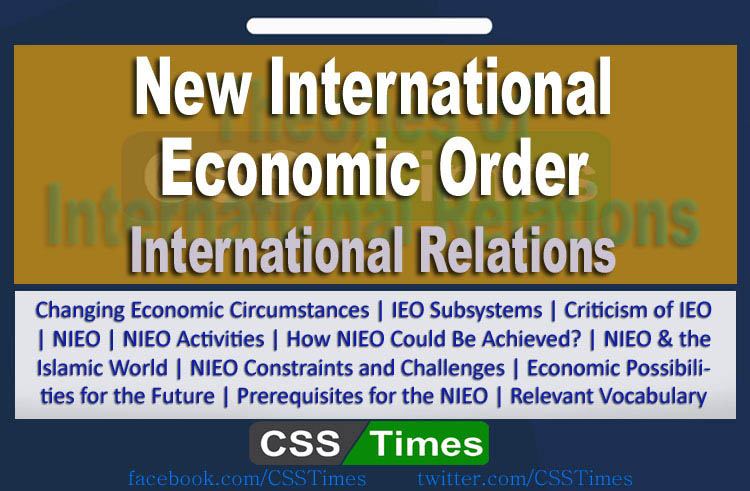New International Economic Order | CSS International Relations Notes
Changing Economic Circumstances
Since WWII, the world economy has undergone drastic changes brought about by changing political circumstances, industrial and technological changes, and changing trade patterns. The dominant economic order which prevailed for four decades after WWII is referred to as IEO.
IEO Subsystems
North-West System: referred to financial and trade linkages between developed nations of Western Europe, Japan and North America.
North-East System: referred to centrally controlled economies of the Soviet Union and Eastern Europe
South System: referred to developing countries of Africa, Asia and Latin America
Criticism of IEO
Economics based on nationalistic grounds has received a lot of criticism. It failed to function in the case of the North-east, leading to the collapse of the USSR.
The control of capital and use of neo-colonial and imperialistic tendencies in terms of trade resulted in large disparities around the world. The North-West system donated money to the South System, but it was not enough to remove widespread poverty. Many developing countries and segments of the population within the developed world called for a revision of the prevailing IEO.

